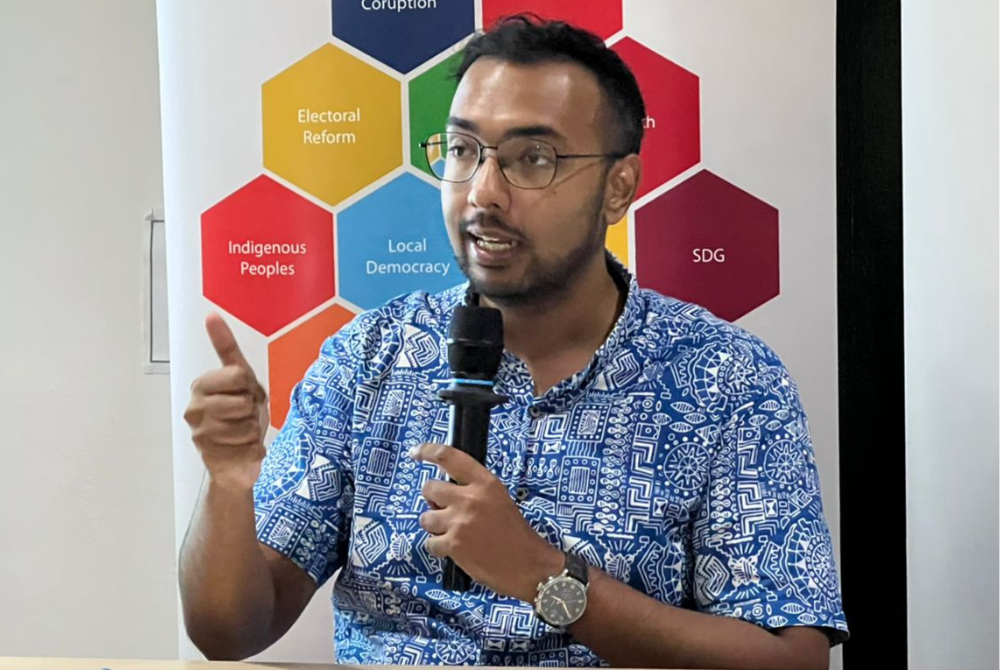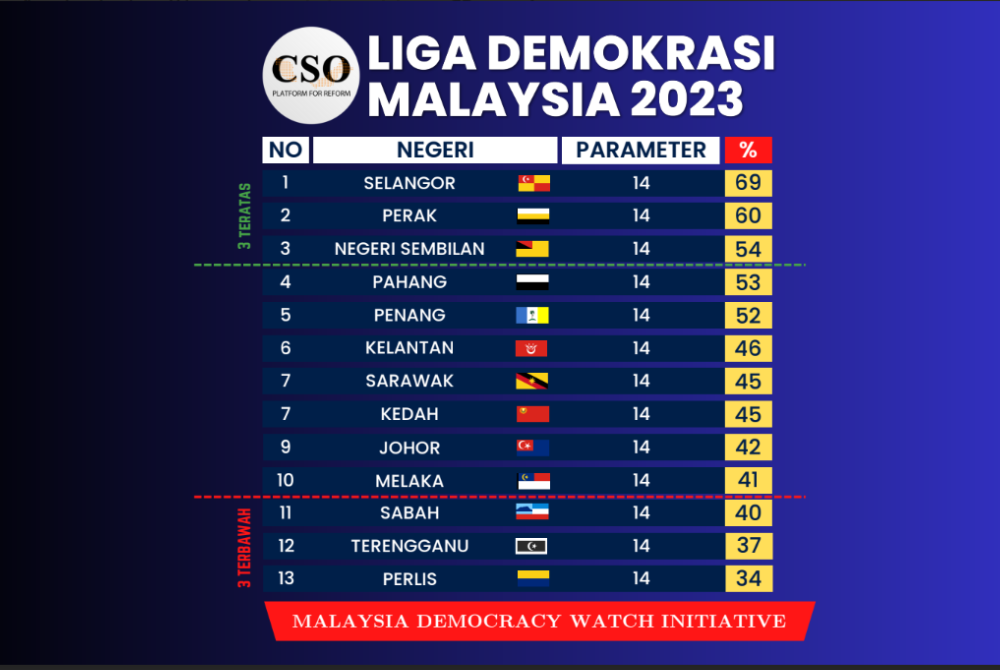Selangor ranked most democratic state while Perlis, T'ganu, Sabah least democratic states in M'sia


SHAH ALAM - Selangor has been ranked as the most democratic state in Malaysia by institutional reform advocacy group, CSO Platform for Reform, with an achievement of 69 per cent, followed by Perak with an achievement of 60 per cent, says Co-Founder of Undi18, Tharma Pillai.
"The Selangor State Legislative Assembly has shown an encouraging performance as it successfully met the parameters that have been set, becoming a leader in some key parameters such as the implementation of the equal allocation of constituency development funds, and is also the longest sitting state assembly for one term with 22 days compared to other state assemblies," he said in a press conference today.
However, the findings, which are called the Malaysian Democracy League', show Perlis (34 percent), Terengganu (37 per cent) and Sabah (40 percent) as the least democratic state assemblies.
The three states (Perlis, Terengganu, and Sabah) fell in the bottom three out of all 13 states.
"These states fell to the bottom due to their failure to implement some of the key Legislative Assembly reforms.
"This can be seen when these three states have appointed their Public Account Committee Chairman from the government block, carried out the distribution of area development allocations unequally, and others," he said.
Further, Tharma said the democratisation of parliament and state assemblies is measured via fourteen parameters that are commonly identified as good democratic and Parliamentary practises.
The parameters are namely the Public Accounts Committee (PAC), PAC Meeting Public View, PAC chairman from Opposition, numbers of Special Select Committees (SSC), Prime Minister or Menteri Besar or Chief Minister or Premier Sarawak Question Time, Anti-Hopping Law, recognition of a shadow cabinet, and standing committees.
The other parameters are the election of Speaker and Deputy Speaker, Parliamentary and State Assembly sitting periods, recognition of the Leader of the Opposition, percentage of members of parliament (MPs), implementation of Calon 18, and equitable constituency development fund allocations.
Tharma said the political landscape of Malaysia is not the same when each state legislature does not implement the same reform agenda.
He said the situation shows that democratisation does not move in tandem, such as with the introduction of the Anti-Hopping Law, which has not been debated nor passed in some states even though it was approved by Dewan Rakyat and Dewan Negara last year.
"Therefore, CSO Platform for Reform hopes that the six states who are going into elections, the scores and indicators shown will be considered seriously by the political parties and their candidates who are contesting this round.
"In the states where performance or indicators are below par, the parties can incorporate these reforms into their respective manifestos and highlight them as an offer for a more progressive, democratic, and functional state legislature," he said.










